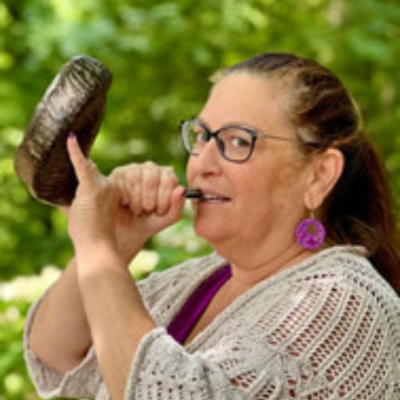Editor’s note: This d’var Torah was completed last week, before the terrible violence that erupted in Israel and Gaza, but its message about tzelem Elohim (creation in the image of God) holds true there just as much as it does for mass incarceration in the U.S. When we see others as less than ourselves, it is easy to do horrific violence to them in the name of our own needs. Conversely, the spiritual challenge of overcoming that tendency is the only thing that will lead us out of the present morass.
The very first thing the Torah tells us about humans is that God made us “in God’s image, after our [i.e., God’s] likeness.” (Genesis 1:26) But how can our own images, our own faces, be that of God? Aren’t we told elsewhere that “no human can see God’s face and live?” (Exodus 33:20)
The rabbis tell us in a midrash that God created Adam as the first human being so that no human could claim a more distinct, auspicious lineage. “Adam was created alone…. so that one person will not say to another: ‘My father is greater than your father.’” (Mishnah Sanhedrin 4:5) The point, they seem to be telling us, is not that we are akin to God, but rather that we are all, radically and fully, akin to one another.
The teaching of “b’tzelem Elohim,” humanity created in God’s image, is therefore not a meditation on the holiness of the human spirit but rather a warning against a certain kind of arrogance, loftiness, or supremacy to which we humans might fall prey.
Find more commentaries on Bereshit.
This danger is apparent in the realm of the human administration of justice. In the United States, the belief that there is something “less than” or “wrong with” those impacted by the criminal justice system has led to higher rates of incarceration, longer sentences, and more prisons than any other developed country in the world. The U.S. is home to under 5% of the world’s population, but over 20% of the world’s incarcerated.
Mandatory minimums and longer sentences, the prosecution of children as adults, failure to provide adequate representation and legal resources, and the overarching impact of racism in our criminal justice system have left us with a population that has literally been thrown away in the name, allegedly, of keeping the rest of us safer. We lock people up far away from our communities, segregated from society and unable to gain the skills and growth necessary for reintegration upon release. We are unable to see the humanity of those behind bars. We label them animals or “super-predators” and give them numbers instead of names, making those who are incarcerated the ultimate other. But studies (like this, or this) tell us again and again that this doesn’t keep those of us on the outside any safer. In fact, we know increased incarceration simply exacerbates the marginalization of those communities already struggling for survival.
So why do we do it?
I believe one reason we dispose of people who have done harm (or are accused of doing harm) is to avoid looking at ourselves and our own baser natures. Who among us hasn’t been so angry that we desired to pick up the nearest object and throw it at someone, even a beloved? Who hasn’t been so desperate for something – medicine, food, shelter – that we haven’t contemplated taking it for ourselves? Who hasn’t been so hurt that we haven’t wanted to lash out and destroy property just to make someone pay attention? Who, among our families, has not suffered the consequences of debilitating trauma or addiction?
Find more commentaries on Mass Incarceration.
We call these actions inhuman, but the very reality that they are committed by human beings makes them, in fact, something any one of us capable of. The second generation of humanity in the Torah (also in this week’s portion) is a story of fratricide: Adam’s son Cain kills his brother Abel in a fit of jealousy and rage. Murderous instinct is baked into us from the beginning, it seems. Yet, we lock people away, impose death by incarceration, and create a system that enables us to turn away from their suffering and deny their relationship to us.
When we lock away those we claim have done harm we are not only denying their humanity; we are also denying the similarities we all carry to those individuals.
As Bryan Stevenson, founder of the Equal Justice Initiative, reminds us, “Each of us is more than the worst thing we have ever done.” The same truism works the other way as well: None of us should ever think of ourselves as only the best of our potential capabilities. Putting people away in prison lets us off the hook from being reminded of and taking responsibility for the baser instincts of our nature, instincts that are by definition part of what it means to be human. Only through knowing this other — through proximity, community-based justice systems, alternatives to incarceration, stronger community schools and employment programs, etc. — can we see that it is often the randomness of circumstance, access to education and training, the opportunity to move more slowly, or sheer dumb luck that has enabled us not to succumb to our negative instincts. If we treated people humanely, got closer and learned their stories, we would see that they and we are only and always similarly human, all descended from one individual prototype, made in God’s image.
Rabbi Elyse Wechterman is the CEO of the Reconstructionist Rabbinical Association. Prior to the pandemic, she served as a volunteer Jewish chaplain to the incarcerated community at SCI Phoenix in Collegeville, PA.

